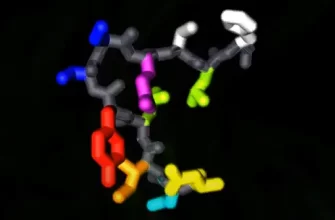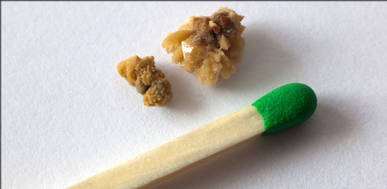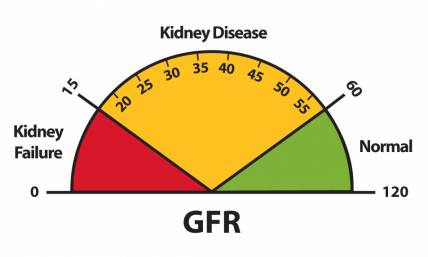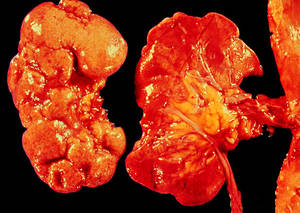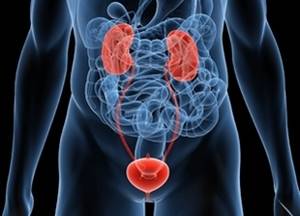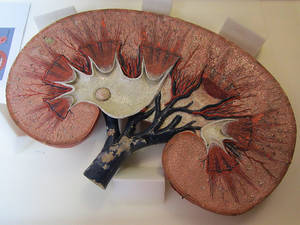Excess protein in the kidney is called proteinuria. This is evaluated in the urine and can also be called albuminuria or urine albumin. A lot of proteins are too big to go through the glomeruli, or the kidney filters. When these filters are harmed, the proteins appear in the urine. High levels of protein in the urine are generally an indication of kidney damage or disease.
What Does Excess Protein in the Kidney Mean?
People with diabetes, high blood pressure or inflammatory illness such as lupus, rheumatoid arthritis, Hodgkin’s disease and leukemia are more at risk for developing kidney disease or chronic kidney failure. Managing the other diseases that enhance the risk for kidney disease can significantly minimize the risk.
Symptoms of Excess Protein in the Kidney
Protein is an essential nutrient required by the body for growth, repair, and maintenance of various tissues and organs. However, when there is an excess of protein in the kidney, it can lead to potential health issues. Here are some symptoms that you should be aware of:
- Increased Urination: Excess protein can put a strain on the kidneys, leading to increased urine production. If you find yourself urinating more frequently or having to get up multiple times during the night to use the restroom, it may be a sign of protein overload.
- Foamy Urine: Proteinuria, or the presence of excessive protein in the urine, can cause foamy or frothy urine. This occurs because the kidneys are unable to filter out the excess protein effectively. If you notice persistent foamy urine, it is essential to consult a healthcare professional.
- Swelling: Protein plays a vital role in maintaining fluid balance in the body. When the kidneys are unable to process excess protein, it can lead to fluid retention, resulting in swelling in the hands, feet, face, and ankles. Keep an eye out for sudden or unexplained swelling.
- Fatigue: If your kidneys are overworked due to excessive protein, you may experience fatigue and a lack of energy. This occurs as the kidneys struggle to filter out waste products and maintain normal bodily functions. If you find yourself feeling constantly tired, despite getting enough sleep, it could be a sign of kidney stress.
- Hazy Vision: Proteinuria can affect the eyes, leading to hazy or blurred vision. The excess protein can cause changes in the blood vessels that nourish the eyes, resulting in visual disturbances. If you notice any changes in your vision, it is crucial to have your kidneys examined.
- Lower Back Pain: Kidney discomfort, particularly in the lower back region, can indicate problems with renal function. When the kidneys are unable to process excess protein efficiently, it can lead to inflammation and pain in the back. If you experience persistent or recurring lower back pain, it is essential to seek medical advice.
- High Blood Pressure: The kidneys play a significant role in regulating blood pressure. However, when protein builds up in the kidney, it can disrupt this balance and lead to hypertension (high blood pressure). If you have unexplained or persistent high blood pressure, it is advisable to have your kidneys evaluated.
Diagnosis
Blood and urine tests are had to diagnose kidney disease. A doctor can calculate a glomerular filtration rate based upon the blood creatinine, age, race and gender to examine the degree of disease progression. Creatinine is a waste product from muscle activity that can build up in the blood stream if the kidneys are not operating properly.
Blood urea nitrogen is another waste material from the breakdown of protein in foods and by metabolism. This can be influenced by diet but generally increases because of decreased kidney function. Numerous medications, consisting of antibiotics, can disrupt diagnostic test outcomes. Dehydration and urinary tract infection can also disrupt tests.
Treatment for Excess Protein in the Kidney
Here are effective treatment strategies for dealing with excess proteinuria:
- Medication: Medications known as angiotensin-converting enzyme inhibitors (ACE inhibitors) and angiotensin receptor blockers (ARBs) can be prescribed by your doctor to reduce proteinuria. These medications lower blood pressure and can also protect the kidneys from further damage.
- Dietary modifications: Adopting a kidney-friendly diet is crucial in managing excess protein in the kidney. Limiting your intake of high-protein foods, such as red meat, poultry, and dairy products, can help reduce proteinuria. Instead, focus on incorporating more low-protein sources like vegetables, fruits, whole grains, and plant-based protein alternatives.
- Weight management: Maintaining a healthy weight is important to reduce proteinuria. If you are overweight, losing excess pounds can help alleviate stress on the kidneys and improve their function. Consult a healthcare professional or a registered dietitian to develop a personalized weight loss plan.
- Physical activity: Regular exercise has numerous benefits for kidney health, including reducing excess protein levels. Engaging in aerobic activities like walking, swimming, or cycling for at least 150 minutes per week can help improve kidney function and reduce proteinuria. Always consult your doctor before starting any exercise program.
- Control of underlying conditions: Managing underlying health conditions such as diabetes and hypertension is crucial in treating excess protein in the kidney. By keeping these conditions under control through medication, lifestyle changes, and regular medical check-ups, you can minimize the risk of further kidney damage.
- Avoiding nephrotoxic substances: Certain medications, herbal supplements, and illicit drugs can have harmful effects on the kidneys and lead to proteinuria. Consult your healthcare provider about the potential nephrotoxicity of any medications or substances you’re using, and discuss alternative options if necessary.
- Regular monitoring and check-ups: It is important to regularly monitor your kidney function and proteinuria levels through urine and blood tests. This allows your healthcare provider to track your progress, make necessary adjustments to your treatment plan, and identify potential complications at an early stage.
Care
By embracing a nutritious way of living and implementing specific preventive actions, you can promote the well-being of your kidneys and reduce the likelihood of encountering additional issues. This handbook offers valuable knowledge and practical suggestions to aid in the supervision and prevention of excessive protein accumulation in the kidneys.
1. Stay Hydrated:
Maintaining the health of your kidneys relies on being properly hydrated. It is recommended to consume a minimum of 8-10 glasses of water daily. By staying adequately hydrated, you assist in removing harmful substances from your body, alleviating the burden on your kidneys and stopping the excessive release of protein.
2. Eat a Balanced Diet:
Ensure your diet is well-balanced, focusing on whole foods such as fruits, vegetables, lean proteins, whole grains, and healthy fats. Limit your intake of processed and high-sodium foods. A diet low in saturated and trans fats can promote better kidney function and reduce protein leakage.
3. Control Blood Pressure:
High blood pressure puts extra stress on your kidneys, leading to protein leakage. Maintain a healthy blood pressure level by limiting sodium intake, practicing portion control, incorporating regular exercise, and reducing stress.
4. Manage Diabetes:
If you have diabetes, it is crucial to manage your blood sugar levels effectively. High blood glucose levels can damage the kidneys, causing protein leakage. Consistently monitor your blood sugar, take prescribed medications, and follow a diabetic-friendly diet to keep your levels within the target range.
5. Quit Alcohol Consumption:
Alcohol consumption can negatively impact kidney function. Stop your alcohol intake to prevent further kidney damage and reduce proteinuria.
6. Quit Smoking:
The act of smoking harms blood vessels, resulting in negative effects on the kidneys. If you want to enhance the health of your kidneys and avoid a leakage of protein, it is advisable to seek assistance and quit smoking.
7. Exercise Regularly:
Participating in consistent physical activity is beneficial for the overall well-being of your kidneys. Strive to engage in at least 30 minutes of exercise that is of moderate intensity, such as brisk walking, swimming, or cycling, for most days of the week.
8. Control Weight and Maintain a Healthy BMI:
Keeping your Body Mass Index (BMI) in a healthy range is very important for kidney health. Having too much weight can hurt the kidneys and make proteinuria worse. A well-balanced diet, regular physical exercise, and watching how much you eat are all important things to do to reach a healthy weight.



